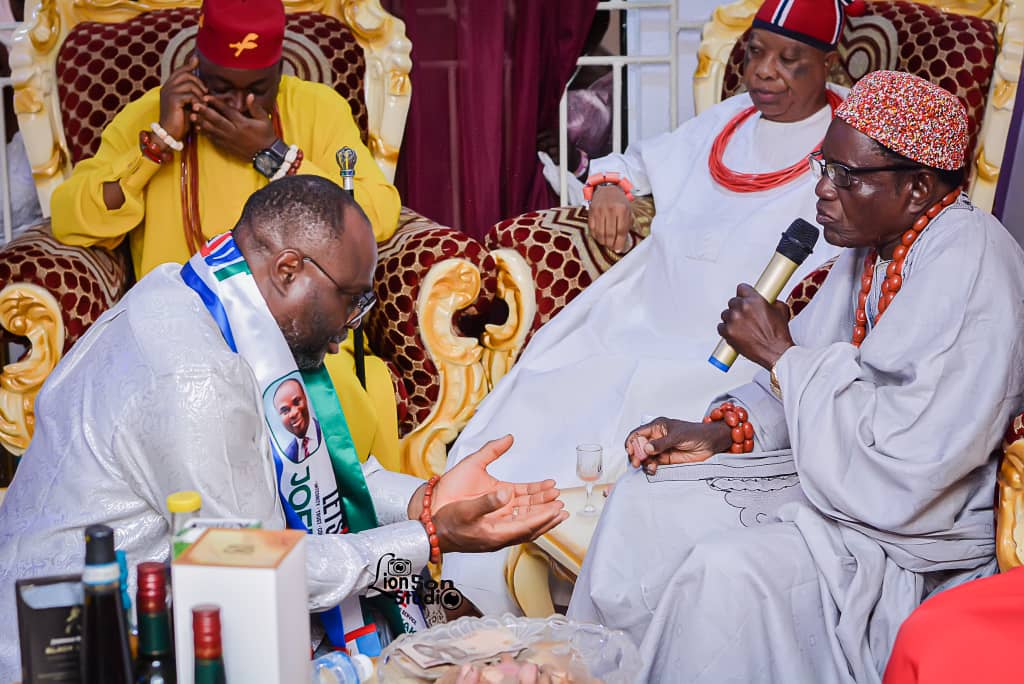As Nigerians prepare to cast their votes tomorrow being Saturday, February 25, 2023, they have been charged to eschew violence in all its forms and come out in their large numbers to exercise their civic right in their bid to ensure a smooth and successful transition to another democratic dispensation in the next four years.
Nigerians were also admonished to take the elections very seriously as it would guarantee a better or worse future depending on the level of importance they attach to the general elections, seeing that the last eight years have been fraught with suffering, hardship, insecurity, banditry, kidnappings and violence across the country.
This was the submission of a Webinar held in Lagos with the theme: Strengthening the Fabric of Democracy: Promoting Peaceful and Non-Violent Electoral Processes in Nigeria organised by the Corporate Accountability and Public Participation Africa (CAPPA).
The virtual meeting, which was anchored by Policy and Research Officer of CAPPA, Zikora Ibeh, featured some of its partners including Vision Spring Initiatives, Rule of Law and Accountability Advocacy Centre and the National Human Rights Commission (NHRC), among others, during which participants stressed that if Nigerians wish to change the untold hardship and suffering they had passed through in the last eight years, then they must take the election seriously and vote peacefully for a positive change.

Speaking, Executive Director of CAPPA, Akinbode Oluwafemi, lamented that Nigeria is blessed with numerous natural resources but had been severally challenged with bad leadership exacerbated by poverty, unemployment and most recently, scarcity of fuel and Naira notes.
“Nigerians are in search of good and purposeful leadership through electoral, legal and civil means. But our message essentially is that of a peaceful, non-violent, credible, free and fair elections, because we believe that good leaders can emerge from the 2023 general elections at all levels,” he stated in his opening remarks.
Also, Project Director of Vision Spring Initiatives, Ngozi Nwosu-Juba, expressed concern over the low representation of women in governance at all levels, especially at the National Assembly, adding that in spite of the 2006 Beijing Affirmative Action for women, which stipulated 35 per cent for women in governance, Nigeria was still at a mere 4.3 per cent since 1999.
She pointed out that due to the strategic importance of Nigeria on the African continent, the burden of doing the right thing as far as women participation in politics was concerned rest squarely on Nigeria, adding, “The inclusion of more women in politics remain very crucial to the sustenance of Nigeria’s democracy and the electoral process.”
She further noted that Nigerians must guide against voting for past military leaders as democratic presidents since they do not respect or care about the constitution and the rule of law.
Read Also: Delta South: Why Itsekiri will not vote Diden for senate
“Nigerians must shun money politics, godfather syndrome. We must deemphasize godfather politics and encourage mentorship. The political process must include women and People With Disabilities (PWDs), while politics must be made less attractive, just as leadership must be decentralised. Above all, the citizens should vote right and vote their conscience,” she stated.
On his part, South West Zonal Coordinator of NHRC, Lucas Koyejo, said since human rights remain intrinsically linked with democracy, failure of the Independent National Electoral Commission (INEC) to make Permanent Voter Cards (PVCs) to thousands of Nigerians, amounted to denial of democratic rights.

“If the people register to vote, INEC should, of necessity, provide them with their PVCs, because voting is crucial in democracy as it holds political office holders accountable since those who fail to perform or fulfill their electoral promises are voted out of office. The citizens need to be reminded of the importance of their ballot, because it determines the direction of the country and the democratic process, as well as how best the people are made aware of their socio-economic and political rights,” he said.
Meanwhile, Executive Director of Rule of Law and Accountability Advocacy Centre, Okechukwu Nwanguma, who spoke on the Role of the Police in Nigeria’s Electoral Process, stressed the need for the Federal Government and security agencies to ensure that peace reigns in the country and especially in the South East before, during and after the general elections since voting remains a crucial element of democracy.
Citing Section IV of the Police Act 2020, he said: “Insecurity and threats of violence by separatist groups in the South East must be addressed through dialogue and engagement to guarantee a more robust voting, which is more likely to reduce electoral fraud.”
Director of Programmes at CAPPA, Philip Jakpor, who gave the vote of thanks at the end of the virtual meeting, restated the group’s stance that: “Election is not war. So, people should come out to vote on Saturday, with their PVCs and not with knives, machetes, guns and other dangerous weapons. Election is not war, but a process of choosing new leaders. Therefore, Nigerians should vote wisely and peacefully.”
Click The Trumpet and follow us on Twitter for more:






